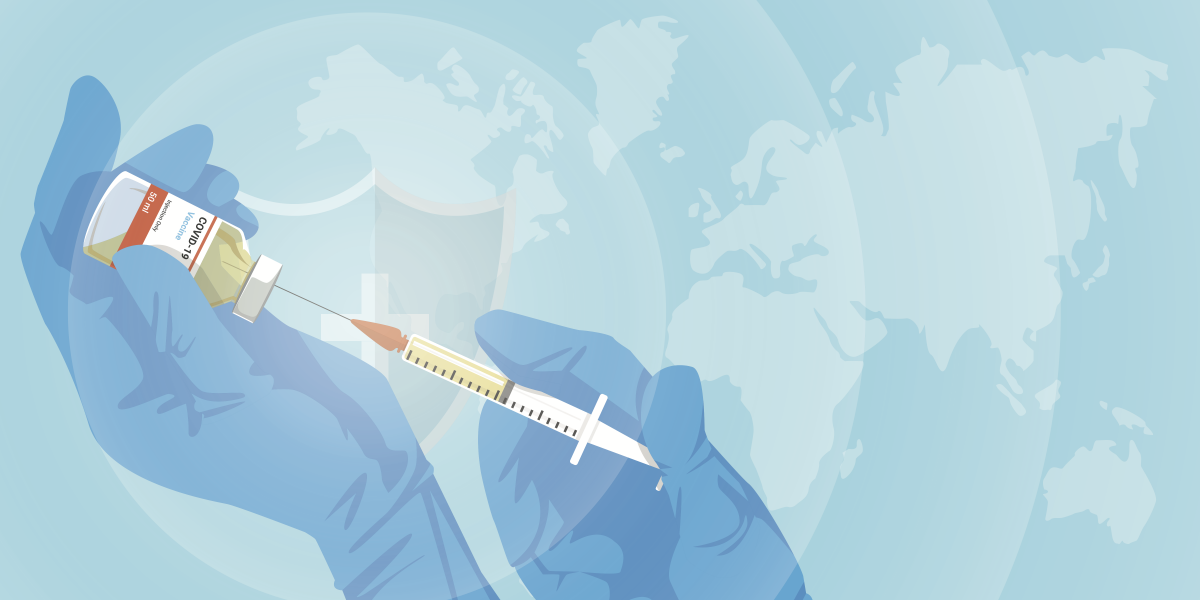Global: JRS Advances Vaccine Access and Education
31 January 2022

Over the past 12 months, access to COVID-19 vaccines worldwide has steadily ticked upwards. Though initially challenged by logistics and coordination, collective action through efforts like COVAX — the World Health Organization’s (WHO) global initiative to share coronavirus vaccines — has advanced the cause to nearly every nation on earth.
Developing countries, however, lag in vaccination rates and greater access to quality vaccines compared to high-income nations. Currently, less than 10% of the people in low-income countries have received at least one dose, while more than 60% of the world’s overall population has been vaccinated.
Social, political and economic exclusion can result in poverty, homelessness and exploitation of displaced persons, which can create a higher risk of infection with SARS-CoV-2, which the WHO highlighted in a 2021 report.
Now, with just over 1 billion doses shipped since early 2021, COVAX has just announced a critical need of $5.2 billion in funds to be able to keep buying doses in the coming months.
Recent reports have shown that vaccine inequities have played a role in the development of new variants, including Omicron, to spread rapidly around the world. With technology and vaccine supply readily available — yet global funding stalled — the next question becomes clear: How and where to implement jabs at scale?
Jesuit Refugee Service (JRS) has played a key role in vaccine promotion across multiple countries and project sites, including in Iraq, South Africa, Angola, and the United States.
In the northern Kurdistan region of Iraq, JRS is sharing information through public awareness campaigns to encourage greater vaccination among the displaced Yazidi population.
“Vaccines are now readily available [in the region],” says Talal Silah, JRS Iraq Director of Advocacy & Education, who coordinated the effort to pass out flyers and posters in public spaces over the past six months.
“Over 500 people have received materials, including face masks and hand sanitizers from JRS,” he finished. “However, [Omicron] cases continue to rise, with almost 8,000 new infections last week in Sharya.”
In the United States, JRS is proud to partner with the Catholic Cares Coalition, a group of Catholic non-profits dedicated to promoting acceptance of vaccines and equitable distribution of vaccines in the U.S. and globally as a reflection of the Catholic commitment to solidarity and charity.
“Omicron has shown that until all people around the world have access to the vaccines, the coronavirus will spread, mutate, and ultimately add to infections around the world,” says Joan Rosenhauer, JRS/USA Executive Director.
“It is especially important for the United States to exercise its global leadership role on these issues. We must ensure that enough vaccines are available globally and that current commitments to provide the vaccines are met,” she says. Moreover, there is a need globally to both ensure the supply of vaccines meets the need and to ensure the health care infrastructure is available to distribute the vaccines throughout remote areas.
In August 2021, Pope Francis, along with six cardinals and archbishops from North, South, and Central America, also urged people to get vaccinated calling it an “act of love towards others.”
On January 10, Francis strongly suggested that getting vaccinated against the coronavirus was a “moral obligation” and denounced how people had been swayed by “baseless information,” finding that “frequently people let themselves be influenced by the ideology of the moment, often bolstered by baseless information or poorly documented facts.”
“Vaccines are not a magical means of healing, yet surely they represent, in addition to other treatments that need to be developed, the most reasonable solution for the prevention of the disease,” he added.
To learn more about JRS’ ongoing accompaniment throughout COVID-19, visit this link. You can play an important role in supporting refugees remotely through the Companions at Home initiative.



